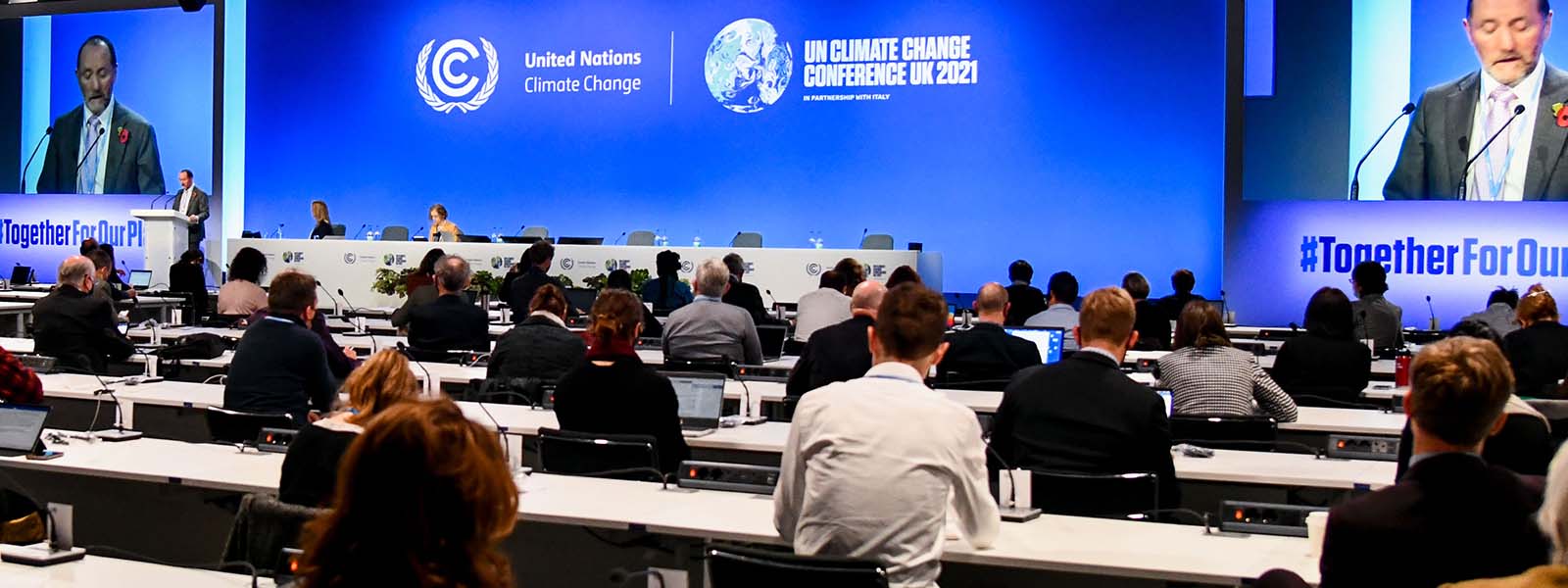2021 has been a busy year for energy and climate policy, punctuated late in the year by the COP26 UN Climate Change Conference that took place in Glasgow, the home of the Centre for Energy Policy. We take a look back at the year including the highs and lows of COP26, the publication of a number of UK Government energy and climate strategies and some key decisions on the future of decarbonisation efforts in the UK.
The highs and lows of COP26
Postponed from 2020 to 2021 because of COVID-19, there was a drawn out build up to the COP26 event. At the end of it all, some thought important incremental steps had been made, while for others, both inside and outside of the main conference halls, progress was disappointing, with real concern that the world was still not on track to meet the urgent climate crisis.
In a series of blogs in the run up to, during and after the conference, CEP Director, Professor Karen Turner highlighted the positives as well as the significant gaps and missed opportunities. Positive highlights included broad consensus amongst leaders to pursue a more ambitious 1.5 degrees Celsius target, a focus on short-term delivery as well as long-term ambitions, yearly reporting and efforts to enable the mix of public and private finance required to support low-carbon transitions. In terms of gaps and missed opportunities, Professor Turner highlighted a key concern around carbon pricing and more needing to be done to harmonise carbon pricing instruments across nations and global regions. Professor Turner argued this will be crucial to addressing the ‘offshoring’ challenge’ where emissions and jobs associated with production activity may simply shift across countries in response to uncompetitive decarbonisation costs.
The CEP team were fortunate enough to have a wide range of opportunities to engage with the conference, including participation in the COP26 Blue Zone. Read some of the highlights from our Deputy Director, Dr Jamie Stewart.
The Net Zero and other strategies
A number of important and long-awaited strategies were published in 2021 and in the run up to COP26. These included the UK Government's Net Zero Strategy and HM Treasury’s Net Zero Review. The former setting out the practical steps to the low carbon transition, and the Review articulating some of the potential opportunities and challenges for the UK economy in realising this transition. The Net Zero Strategy is underpinned by four key principles - working with the grain of consumer choice, ensuring biggest polluters pay most, ensuring the most vulnerable are protected, delivering deep cost reductions in low carbon tech. Professor Turner reflected on these principles and the extent to which they aligned with our own list of net zero principles which we have developed over the last seven years of conducting research into the wider economic and societal outcomes of transitioning to net zero. Professor Turner also explored some of the wider economic and societal opportunities and challenges of the transition to a net zero economy in her response to the 2021 Autumn Budget.
The Heating and Buildings Strategy was also published in England, and the Scottish Government published a similar strategy which Deputy Director Jamie Stewart and researcher Christian Calvillo Munoz explored in more detail in this blog and in relation to their work on a sustainable and equitable heat transition.
Important decisions on carbon capture and storage (CCS) clusters and industrial decarbonisation
The UK government announced that the Hynet and East Coast industrial clusters would be part of Phase 1 of deploying CCS technology at scale. Understanding the wider economic and societal impacts of CCS will be critical to its effective deployment and contribution to wider efforts to meet net zero targets by 2050. CEP’s research published in November 2021 has found that CCS offers a number of green growth opportunities, but these could also pose some difficult choices and tensions in relation to achieving other policy priorities such as the regional levelling-up agenda. CEP will continue to explore some of these opportunities and challenges in 2022 through work funded by Innovate UK and the Children’s Investment Fund Foundation through the Bellona Foundation.
Energy and climate issues in 2022
Undoubtedly, energy and climate will remain high on the political agenda for 2022, particularly set against the global backdrop of energy prices continuing to rise. In particular, the CEP team will be keeping a close eye on:
- Who pays for a low carbon transition – including opportunities and challenges around green finance, the balance of levies and subsidies, carbon pricing and the impact of rising energy and other prices on consumers and the wider economy.
- The realities of delivering the ambitions set out in the Net Zero and other strategies, such as the development of low carbon fuels and heat decarbonisation, and what these mean for the wider economy.
- The ongoing implications of the UK’s COP presidency, and what COP27 in Egypt promises and delivers.
Image Credit: Justin Goff/ UK Government, flickr.com, CC BY-NC-ND 2.0
